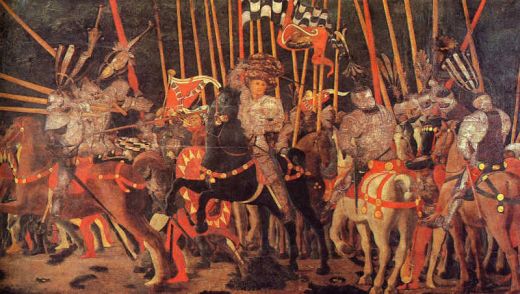Fritz Stern, “Imperial Hubris: A German Tale,” Lapham’s Quarterly, Winter 2008.
Those who can’t find the time to tackle the weighty Five Germanys I Have Known should pick up the premier issue of Lapham’s Quarterly, where they can read a perfectly polished Fritz Stern gemstone on the problems inherent in the invocation of history in contemporary politics.

Stern offers up a series of insights into the use and abuse of history in modern life, quoting the heroic Marc Bloch (“History is like a knife. You can cut bread with it. But you could also kill.”) As he notes, the use of historical analogy is much more problematic in an age of “stunning historical ignorance.” Let’s not mince words. We are living in such an age. Just think of the steady drip of grossly misplaced references to “Munich” and “1938” that flow from Donald Rumsfeld, Dick Cheney, William Kristol and other members of the war party. And in short order, indeed, Stern comes to just this point. How many of these people who invoke the image of “Munich” have an inkling about what actually happened at that conference, and how political and social forces of the time were arrayed. Yes. Chamberlain proved a fool; Churchill proved heroic and a man of penetrating vision; Hitler was soon to be revealed for the monster he always was. And what does the talk of “appeasement” have to do with a civil war in Iraq? (In fact, Churchill spoke directly to this point, saying that the common American analogies to “Munich” were dangerously wide of the mark and misinformed.)
But then Stern turns to give us the material for a really stunning parallel. There are a lot of people around today pointing to the rise of Fascism in Germany as a point of comparison. Because of the unique historical nature of that phenomenon and the horrendous evil associated with it, such comparisons are cheap political fodder and quite dangerous. But Stern suggests that the parallels to the swan song of the Wilhelmine Empire are very strong. I say “swan song” because it turned out to be that, but as Stern notes in our interview (below), Germany then stood at the cusp of world-historical greatness. It had assumed a leadership role in science and industry, without a doubt the strongest power on the Continent. Everything turned sour in the end; it was a classic “wrong turn” on the historical path. And a number of powerful personalities had a hand on the wheel. Stern examines a number of newly published historical documents to give us a glimpse of the personality of Kaiser Bill himself, Wilhelm II. He weaves a rich tapestry, but let me just pull a few threads:
• “He appeared on the world stage as a boisterous and threatening leader, while at home he flaunted his absolute power, believing he had been divinely ordained. He had contempt for a parliament whose tightly circumscribed powers were set forth in a constitution he boasted of never having read.”
• “He was given to bombastic speeches… He detested liberal critics. And he spoke disparagingly of foreign nations.”
• The Kaiser’s inner circle were steadily “worried about his volatility and mental health.” They noted that he had trouble dealing with negative news, which led to a decision to keep it from him. Thus, this all-powerful executive became a “bubble boy,” carefully shielded from the thoughts of critics and from bad news from the front.
• Admiral Tirpitz: “The sad and worrisome thing about this talented monarch is that for him appearance trumps substance.”
• Max Weber: “We are becoming ‘isolated’ because this man rules us in this way and because we tolerate it and make excuses for it.”
• The Kaiser’s role on war crimes was noteworthy: publicly he “proclaimed the nation’s innocence” while privately he argued the need to “do what it takes” to win the war, condoning atrocities in Belgium and elsewhere.
• The war was for him “a struggle between Good and Evil.” “God wants this struggle and we are His instruments.”
I cannot read these words without thinking about the current resident at America’s executive mansion. The parallels are not perfect, but they are close enough to rattle. There are of course significant differences: for America, a stronger constitution, an independent judiciary, a tradition of Congressional oversight, and an independent professional military. But this comparison serves to focus attention on the need for such balances and bulwarks. And under President Bush, each of these checks has been horribly eroded.
Fritz Stern sums up in a grand style:
Our nation is not like imperial Germany, and great as our dangers are, they can’t be compared to the horrors of that earlier time. But there may be a distant lesson from a country whose rulers in war, quarrelling among themselves, inflicted unimaginable harm to their people and the world with their mendacity, secrecy and paranoia. The consequences of their leadership—bolstered as it had been by claims of divine guidance, shrouded in chauvinism, and fortified by the cunning manipulation of pervasive fear—became truly manifest only later, as the people of an aggrieved nation turned against each other, almost reveling in their deep political and moral divisions and hatreds.
This is the lesson of imperial hubris. It is historical analogy delivered as a form of art and moral nourishment at the same time. And the entire exercise is brief enough to absorb in a single sitting.



